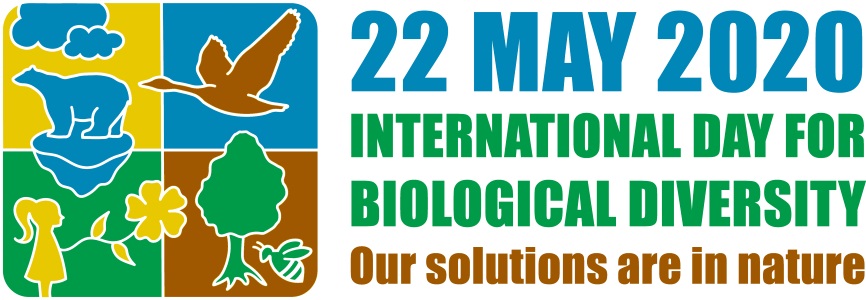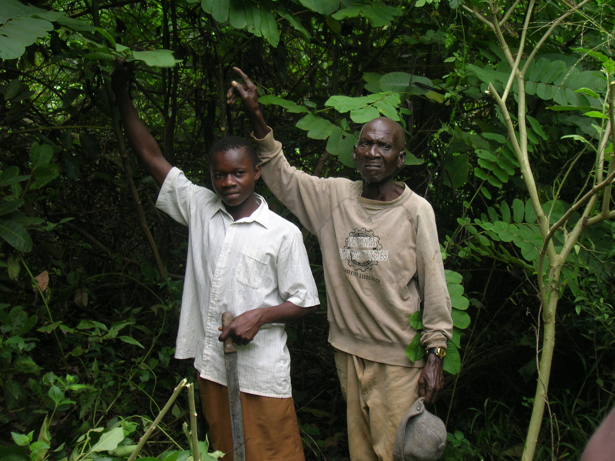IPSI Newsletter

TOPIPSI NewsletterIPSI Newsletter, May 2020
IPSI Newsletter, May 2020
2020.05.28
Dear IPSI members and friends,
Greetings from the IPSI Secretariat in Tokyo, Japan. IPSI and its members continue to stay active in a wide variety of projects and activities related to landscape and seascape approaches towards “societies in harmony with nature”, even during the ongoing COVID-19 pandemic. It is our greatest hope that you and your friends and family are staying safe and healthy during this difficult time.
This month’s newsletter contains a message about the recent International Day for Biological Diversity, a pre-announcement regarding this year’s round of the Satoyama Development Mechanism (SDM), news about a new publication using the Indicators of Resilience in SEPLS in China, and one of IPSI’s newest case studies from Conservation Alliance International in Ghana.
As always, please feel free to contact us to submit any new case studies or other information about your activities, or if you have any questions or comments.
IPSI Secretariat

International Day for Biological Diversity 2020
Last week was “Biodiversity Week” around the world, culminating in the International Day for Biological Diversity on Friday, 22 May. The theme this year was “Our solutions are in nature”, with the CBD website noting that “Nature-based solutions offer immediate and cost-effective benefits to both mitigate climate change and to adapt to its unavoidable effects”, and “Biodiversity and ecosystems play an important role in strengthening the global response to climate change, while delivering multiple benefits. Better protection, management and restoration of natural and managed ecosystems can make significant contributions to the mitigation of human-induced climate change.” Nature-based solutions in this case are identified as including “reducing deforestation and other land-use change and degradation; restoring degraded lands and ecosystems; and enhancing soil management in agricultural and range lands.”
While celebrations were mostly held online this year due to the global COVID-19 pandemic, webinars and similar events were held, many organized by or including IPSI members and friends. From the perspective of the Satoyama Initiative, nature-based solutions certainly can be a useful tool for creating resilient communities and landscapes and improving mitigation and adaptation to climate threats, but we should also not forget the other benefits of a landscape approach to biodiversity and human well-being identified through IPSI’s work, such as the inherent multiple values of nature and sustainable livelihoods. In any case, milestones like the International Day for Biological Diversity provide a good opportunity for all of us to think about how we can and do live in harmony with nature. Please keep in touch with the IPSI Secretariat regarding any of your activities around this and other events.
Pre-announcement: SDM 2020
The Satoyama Development Mechanism (SDM) is an IPSI collaborative activity that serves as a financing mechanism to facilitate the implementation of activities under IPSI. It provides grants of up to USD $10,000 to selected IPSI members each year for implementation of on-the-ground projects, meetings and workshops, research activities, and others. The SDM secretariat would like to share with IPSI members that they are currently preparing it’s Call for Proposals for SDM’s 2020 round of funding, which is expected to be sent out around early June. All IPSI members are welcome to submit applications once the Call for Proposals is sent out.
Please keep an eye out for announcements from IPSI and the SDM in email to members, this newsletter, the IPSI website, and the SDM website here.
New Publication: Assessment of the Resilience in SEPLS in Yanuo Village, Xishuangbanna, Southwest China
A new article recently appeared in the journal Sustainability, based on work using the “Indicators of Resilience in Socio-ecological Production Landscapes and Seascapes” developed through IPSI collaborative activities.
According to the article abstract, “Participatory ‘assessment workshops’ were held in 2018 in Yanuo Village, Xishuangbanna, Southwest China. The ‘Indicators of Resilience in Socio-Ecological Production Landscapes and Seascapes (SEPLS)’ tool was used to provide the community with a framework for discussion and analysis of socio-ecological processes essential for resilience. Workshops were planned and implemented by local people together with researchers from outside the community. Discussion, including a scoring process, was undertaken using a subset of twenty indicators designed to capture the communities’ perceptions of factors affecting the resilience of their landscapes. The indicators were also used to provide the local community with a framework to discuss both current conditions of resilience and potential areas for improvement. A key result was that the existing community management approach did not include loss of traditional knowledge as a factor that would impact on the livelihoods and well-being of the community. A mechanism to encourage young people to inherit and actively use traditional knowledge was agreed to be necessary and included in economic activities. In addition, the socio-economic infrastructure in the community needs further improvement. This community management assessment framework in Yanuo Village can be scaled out to other communities in tropical montane regions with similar socio-economic environments by supporting stakeholders (policymakers, NGOs and development agencies, etc.).”
Readers are encouraged to read the whole article, as it contains a great deal of information that should be of interest to anyone working with issues related to IPSI. The article is available on the Sustainability website here.

Recent Case Study: Conservation Alliance International
The IPSI Secretariat recently received a case study from partner organization Conservation Alliance International in Ghana, titled “Empowering communities for natural resource management: the case of Community Resource Management Areas (CREMA) in Western Ghana”.
According to the case study, natural resource management in Ghana has gone through several phases with different results. Prior to colonialism, traditional leaders and local communities devised different mechanisms to protect the integrity of natural resources, including the use of taboos, norms and customs. The adherence to these traditional practices was meant to ensure the long-term conservation of resources and safeguard economic security. The traditional practices were no longer entertained during colonial times and at the time of independence. The government then adopted the protected area management approach for natural resources, which only led to loss of biodiversity. Against this background, the Government of Ghana recognized the value of community involvement in resource governance and established Community Resource Management Areas (CREMAs). The CREMA intervention focuses on bringing together communities that share common resources and take affirmative action to jointly manage their shared resources. To sustain the functioning of the CREMA initiative, a robust management strategy that will address the needs of different stakeholders is required. A study was therefore conducted to understand the needs of stakeholders to support the management of the CREMAs. CREMAs are proving to be the most effective means of engaging communities to appreciate the value of natural resources and participate in their sustainable management.
This case study was originally published in the Satoyama Initiative Thematic Review vol. 5. For the full case study, please see either the volume or the full write-up of the case study on the IPSI website here.
Contact
Please be sure to let the Secretariat know if there are any changes in your e-mail address or contact information.
Secretariat of the International Partnership for the Satoyama Initiative
United Nations University Institute for the Advanced Study of Sustainability (UNU-IAS)
5–53–70 Jingumae
Shibuya-ku, Tokyo 150-8925
Japan
Tel: +81 3-5467-1212
Fax: +81 3-3499-2828
Email: isi@unu.edu
If you have been forwarded this newsletter and would like to SUBSCRIBE, you can do so on the IPSI website here.


